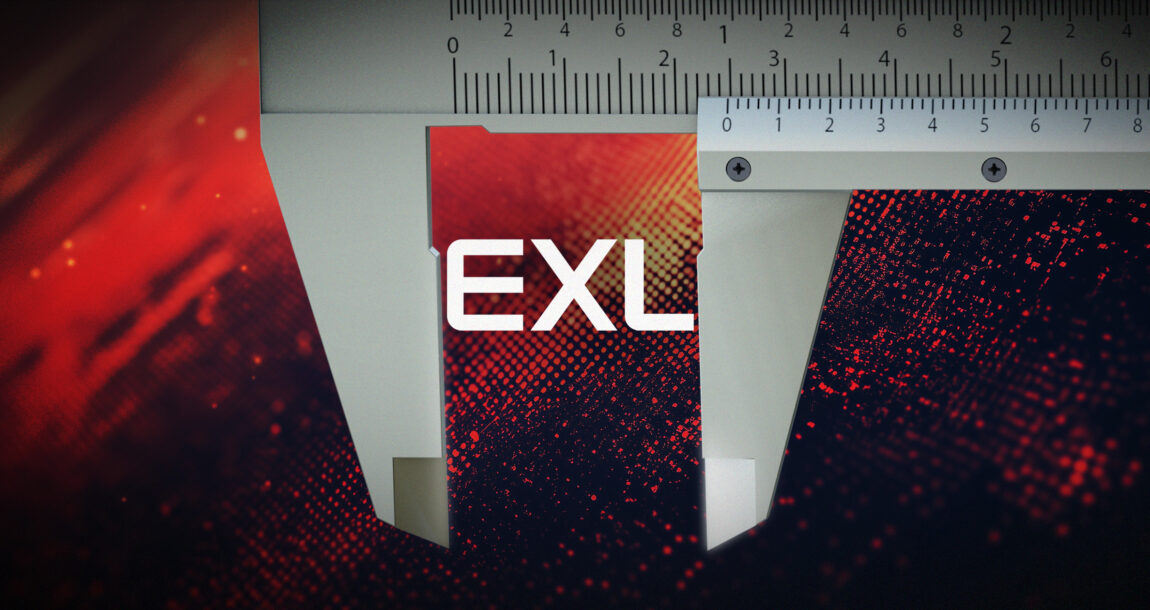EXL, NVIDIA develop ‘most accurate’ AI insurance model

A US-based data solutions provider has begun rolling out a unique artificial intelligence model built specifically for the insurance industry’s needs — a welcome solution for carriers struggling to implement AI.
Data analytics company EXL has partnered with technology supergiant NVIDIA to develop an insurance large language model that aims to improve efficiency, accuracy and fraud detection.
It’s an industry-first that Anand “Andy” Logani, executive vice president and chief digital officer, EXL, believes will revolutionize the provision of fast and scalable AI in insurance and other complex enterprise production environments.
“By focusing exclusively on insurance-related tasks, EXL has incorporated its deep knowledge of the insurance industry and highly tailored proprietary data to create the industry’s most accurate LLM,” he said.
Rapidly advancing technology
The use of AI has been a hot-button topic in insurance over the past few years. Its ethical use has been widely debated, even as customer demand increases and regulators seek to implement uniform standards.
A large language model is a form of AI or machine learning that can process and generate data such as human text.
Insurance businesses that have begun incorporating AI into their operations have used LLMs to quickly process large amounts of data and speed up claims processing, underwriting and other tasks.
However, until now, the LLMs used by American insurers have largely been generic rather than built for the industry’s unique needs.
“Generic LLMs fail to address the nuanced challenges faced by insurance companies during claim adjudication, leading to inefficiencies, high indemnity costs, claims leakage, longer settlement timelines and increased compliance risks,” Logani explained.
As such, some insurance providers struggled to leverage “off-the-shelf, general LLMs that lack fine-tuning of private insurance data and domain-specific understanding of business process operations.”
The EXL Insurance LLM solution was designed to address these specific needs.
Developed with experts
What’s even more unique about the new insurance LLM is that it was developed in collaboration with NVIDIA AI Enterprise — a brand recognized as a global leader in technology including AI, computing and more.
“Through this collaboration, EXL will help drive significant improvements in the performance of the latest large language models, resulting in more intuitive and comprehensive solutions for enterprise customers,” Logani said.
The LLM was customized using NVIDIA software and an advanced process that involved training, deployment and high-level user experience design. Logani described this meticulous approach as “crucial” for handling the extensive datasets the insurance industry typically works with.
According to EXL, the intensive level of development has paid off in the form of high performance. In early internal studies, the company found its Insurance LLM was 30% more accurate than popular AI models such as OpenAI’s GPT4 and Google’s Gemini when performing specific insurance tasks.
Additionally, EXL suggested its solution costs 30% less than generic LLMs while ensuring full regulatory compliance — a major concern insurance companies contend with when deciding whether to use AI.
“By leveraging NVIDIA AI Enterprise software, EXL can dramatically compress model development time and embed client-specific data, analytics and digital tools directly into client workflows more rapidly and cost-effectively than before,” Logani said.
Tailor-made success for the industry
According to EXL, its new language model will help insurance companies in four key areas:
● Efficiency
● Accuracy
● Fraud detection
● Predictive behaviors
“Use cases are targeted towards bringing enormous efficiency. Underwriters are expensive resources, spending precious time on case reviews. This time is reduced from days to minutes and with AI as a job aide to underwriters,” Logani said.
He emphasized the need for this as many insurance companies struggle with an aging, retiring workforce. Maintaining accuracy and efficiency are labor-intensive and rely on significant human resources that AI could help with, he suggested.
The EXL Insurance LLM is also built to help detect errors, omissions or intentional non-disclosures, thereby potentially improving anti-fraud capabilities.
The AI insurance model "corroborates with different types of evidence. For example, the applicant may have intentionally omitted diabetes disclosure, but medication and drug history will point to specific tests or drug usage in the reports showing diabetes,” Logani explained.
The LLM could also help with upselling opportunities, loss expenses and other financial targets through predictive behaviors. According to Logani, it will predict “policy lapses, underwriting case outcomes ahead of having all evidences for modeling, premium defaults cases and cross-sell opportunities.”
“The Insurance LLM we developed helps to improve the speed and effectiveness of claims adjudication and policy underwriting. It will further enhance our medical underwriting capabilities,” he said.
EXL currently works with two clients but plans to fully implement the Insurance LLM over the next several weeks.
EXL Service is a global data analytics and digital operations and solutions company based in New York. Founded in 1999, it now has a team of 1,500 data scientists and operates in a wide range of industries.
© Entire contents copyright 2024 by InsuranceNewsNet.com Inc. All rights reserved. No part of this article may be reprinted without the expressed written consent from InsuranceNewsNet.com.
Rayne Morgan is a journalist, copywriter, and editor with over 10 years' combined experience in digital content and print media. You can reach her at [email protected].





Regulators opt for narrow scope with offshore reinsurance guideline
Retirement: Overcoming the high cost of fear
Advisor News
- Main Street families need trusted financial guidance to navigate the new Trump Accounts
- Are the holidays a good time to have a long-term care conversation?
- Gen X unsure whether they can catch up with retirement saving
- Bill that could expand access to annuities headed to the House
- Private equity, crypto and the risks retirees can’t ignore
More Advisor NewsAnnuity News
- New York Life continues to close in on Athene; annuity sales up 50%
- Hildene Capital Management Announces Purchase Agreement to Acquire Annuity Provider SILAC
- Removing barriers to annuity adoption in 2026
- An Application for the Trademark “EMPOWER INVESTMENTS” Has Been Filed by Great-West Life & Annuity Insurance Company: Great-West Life & Annuity Insurance Company
- Bill that could expand access to annuities headed to the House
More Annuity NewsHealth/Employee Benefits News
Life Insurance News
- Judge tosses Penn Mutual whole life lawsuit; plaintiffs to refile
- On the Move: Dec. 4, 2025
- Judge approves PHL Variable plan; could reduce benefits by up to $4.1B
- Seritage Growth Properties Makes $20 Million Loan Prepayment
- AM Best Revises Outlooks to Negative for Kansas City Life Insurance Company; Downgrades Credit Ratings of Grange Life Insurance Company; Revises Issuer Credit Rating Outlook to Negative for Old American Insurance Company
More Life Insurance News